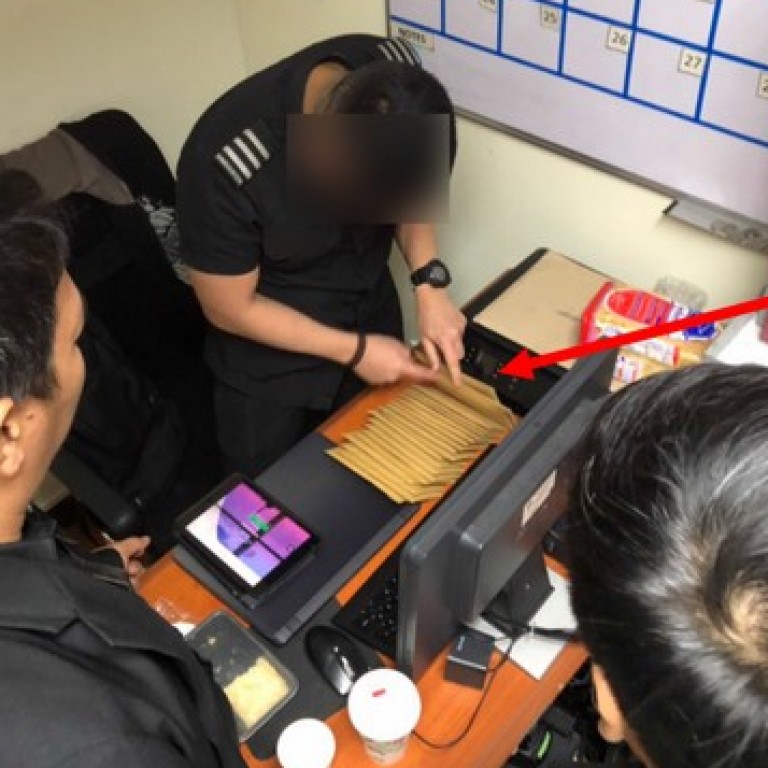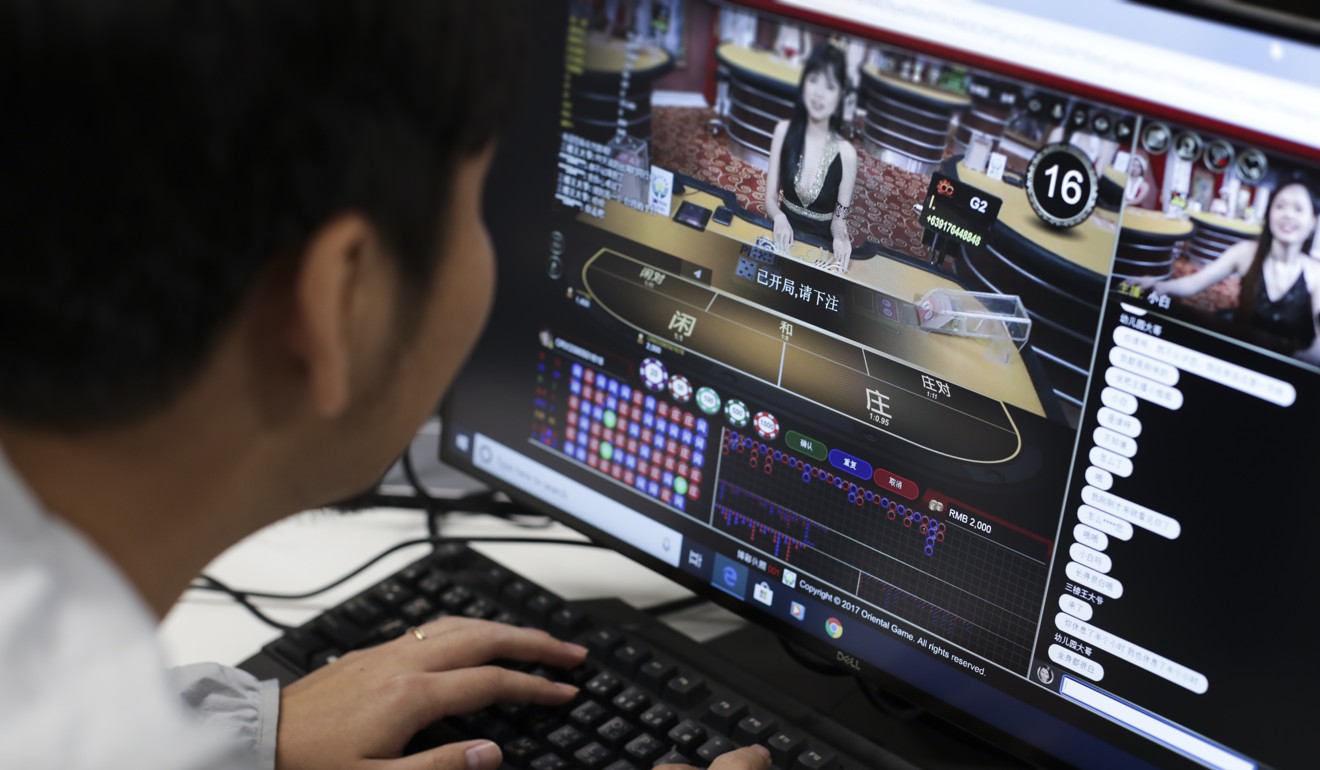
Philippine airport syndicate has sweet deal for Chinese nationals looking to work illegally
- Immigration officials have been accused of taking bribes to provide priority entry to Chinese nationals, many of whom go on to work for gambling firms
- Known as pastillas after a Philippine confectionery, the payments could have come to almost US$20 million in the past few years, a senator says
The group operates with such impunity that it uses tabulated payrolls to track income and how much should go to individual immigration agents. The cash is openly distributed in neat envelopes arranged in boxes.
According to senator Risa Hontiveros, who presented CCTV footage and testimony from an unnamed whistle-blower, the syndicate charged 10,000 pesos (US$197) per client and might have raked in 1 billion pesos (US$19.8 million) in the past few years.
She called the officials involved “traitors to the country”.
A Chinese crime wave hits Duterte’s Philippines as Pogos grow unchecked
In response to Hontiveros’ presentation, Bureau of Immigration spokesperson Dana Sandoval told media that bureau chief Jaime Morente was “deeply alarmed” and had ordered “a full-blown investigation”.
Hontiveros presented the findings mas part of an ongoing investigation conducted by her senate committee on women, children, family relations and gender equality. The committee has been looking at sex trafficking linked to Philippine offshore gaming operators (Pogos), companies based in the Southeast Asian nation that target citizens of China, where gambling is illegal.
Instead, activists and NGOs say Pogos have served as an entry point for Chinese crime syndicates and hundreds of thousands of Chinese nationals who fly in as “tourists” but go on to work illegally for the gambling firms.

Government raids in the past year have unearthed scores of Pogos operating without registration or permits. The few that are registered have not paid any taxes and owe the Philippine government 50 billion pesos, tax officials told a senate hearing last week.
Pogos have also been linked to a drastic surge in crimes involving Chinese nationals: gambling, kidnapping, drugs and prostitution.
Hontiveros’ committee has been checking how Chinese syndicates have been bringing in not just illegal Pogo employees but also Chinese sex workers to cater to the employees.
The Duterte administration made it easy for Chinese nationals to enter the Philippines through a “visa upon arrival” scheme. Hontiveros, however, said the operation run by the Manila airport syndicate went beyond this.
In a typical operation, Chinese visitors obtain a tourist visa on the mainland then pay a special “service fee” before flying to Manila. Upon arrival, they are met by immigration “escorts” and taken to a separate room where they are checked against a list.
When verified, they are immediately allowed into the country, skipping the normal immigration process.
“Let’s not fool the public, this is not standard procedure,” Hontiveros told the senate. She also noted how difficult it was for Filipinos to go to other countries where immigration officers give them a hard time: “But here, with us, it’s like a karinderya [eatery] that’s open for business to all?”
She said the immigration officials coordinated their activities through the communications app Viber and referred to the pay-offs as pastillas, after the Philippine milk-based confectionery. The description arose because the first cash pay-offs were tightly rolled up in white sheets of paper, the way the sweets are. While the money is now put in envelopes, the name remained.

According to Hontiveros, her informant said that while the CCTV footage showed immigration agents at Terminal 1, the pastillas pay-offs happened in the Manila airport’s other terminals as well.
“Things wouldn’t be this systematic if there were no protector,” she said, adding that a major question was how far up the immigration bureau’s hierarchy the payments went.
The senator also said around 1 billion pesos might have already been disbursed as kickbacks to corrupt officials.
Immigration officials who attended the senate hearing said they were not aware of such an operation, but Hontiveros said the operations even used “templates”.
After Philippines scraps US defence pact, Rodrigo Duterte eyes Russian arms
“You fill in the blanks and then an algorithm would calculate how much the immigration personnel involved would receive from the 10,000-peso fee,” she said. “It’s a very cynical, systematic and centralised operation.”
The senator said her informant showed her that this was the process through which illegal Pogo workers and trafficked women were smuggled into the Philippines. The influx of trafficked women has reached the stage that numerous hotels are now involved in Chinese prostitution.
Last month, the senate heard from law enforcement officials who directly linked the proliferation of prostitution dens to the rise of Pogos.
Joel Tuvera, anti-organised and transnational crime division chief of the National Bureau of Investigation, on Monday said officials had raided numerous hotels all over Manila and rescued scores of trafficked women.
He told the hearing that “some taxi drivers refer to the hotels as being like wet markets, because they just bring customers in, after an hour the customers come out and a new group comes in”.
Purchase the China AI Report 2020 brought to you by SCMP Research and enjoy a 20% discount (original price US$400). This 60-page all new intelligence report gives you first-hand insights and analysis into the latest industry developments and intelligence about China AI. Get exclusive access to our webinars for continuous learning, and interact with China AI executives in live Q&A. Offer valid until 31 March 2020.

